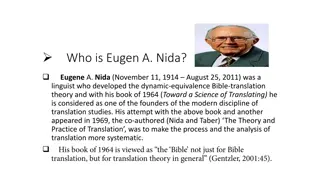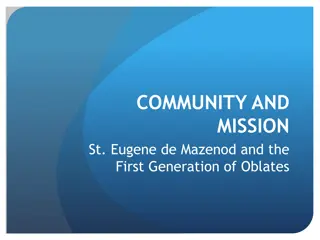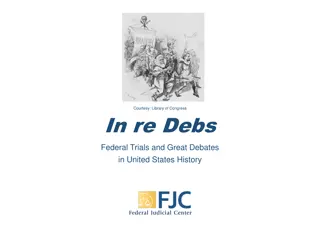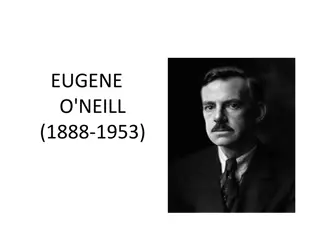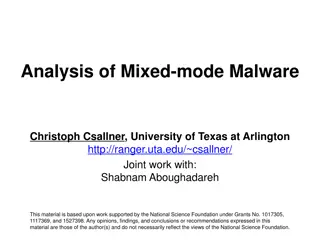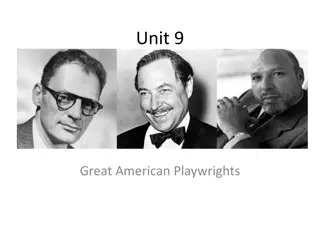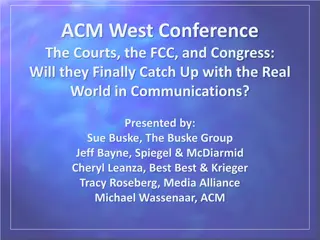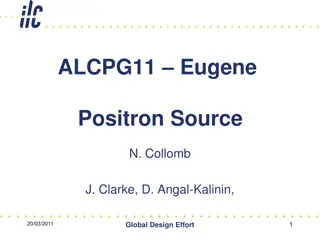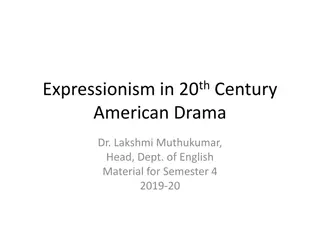
Eugene O'Neill - American Playwright and Nobel Laureate
Eugene Gladstone O'Neill (1888-1953) was a renowned American playwright who won the Nobel Prize in Literature in 1936. He was known for his impactful works such as "Anna Christie" and "Strange Interlude." Explore his life, career, personal relationships, and legacy.
Download Presentation

Please find below an Image/Link to download the presentation.
The content on the website is provided AS IS for your information and personal use only. It may not be sold, licensed, or shared on other websites without obtaining consent from the author. If you encounter any issues during the download, it is possible that the publisher has removed the file from their server.
You are allowed to download the files provided on this website for personal or commercial use, subject to the condition that they are used lawfully. All files are the property of their respective owners.
The content on the website is provided AS IS for your information and personal use only. It may not be sold, licensed, or shared on other websites without obtaining consent from the author.
E N D
Presentation Transcript
Eugene O`Neil Prepared by Natali Burgelya
Eugene Gladstone O'Neill (October 16, 1888 November 27, 1953) was an American playwright. He was awarded the Nobel Prize in Literature in 1936. He won four Pulitzer Prizes throughout the 1920s and one even after his death in 1957.
Early life O'Neill was born on October 16, 1888 in a hotel room in New York City, New York.[1] He studied at Princeton University and at Harvard University. O'Neill's parents were immigrants from Ireland.
Career O'Neill's best-known stage works include, Anna Christie (for which he won the Pulitzer Prize, 1922), Desire Under the Elms (1924), Strange Interlude (for which he won the Pulitzer Prize, 1928), Mourning Becomes Electra (1931), and his only well-known comedy, Ah, Wilderness! (1933). O'Neill won the Nobel Prize in Literature in 1936. He won four Pulitzer Prize for Drama for his works on stage.
Personal life O'Neill was married to Kathleen Jenkins from 1909 until they divorced in 1911. They had one son. Then, he was married to Agnes Boulton from 1918 until they divorced in 1929. They had one son and one daughter. Then, he was married to Carlotta Monterey from 1929 until his death in 1953. O'Neill was an Agnostic
Death O'Neill died on November 27, 1953 at a hotel room in Boston, Massachusetts from cerebellar cortical atrophy. He was 65 years old. As he was dying, he whispered his last words: "I knew it. I knew it. Born in a hotel room and died in a hotel room."
Books O'Neill, Eugene; Bogard, Travis (1988). Complete Plays 1913 1920. The Library of America. 40. New York: Literary Classics. O'Neill, Eugene; Bogard, Travis (1988). Complete Plays 1920 1931. The Library of America. 41. New York: Literary Classics. O'Neill, Eugene; Bogard, Travis (1988). Complete Plays 1932 1943. The Library of America. 42. New York: Literary Classics. Black, Stephen A. (2002). Eugene O'Neill: Beyond Mourning and Tragedy. Yale University press. Floyd, Virginia (1985). The Plays of Eugene O'Neill: A New Assessment. Frederick Unger. Gelb, Arthur & Barbara (2000). O'Neill: Life with Monte Christo. Applause/Penguin Putnam. Sheaffer, Louis (2002 [1968]). O'Neill Volume I: Son and Playwright. Cooper Square Press.

